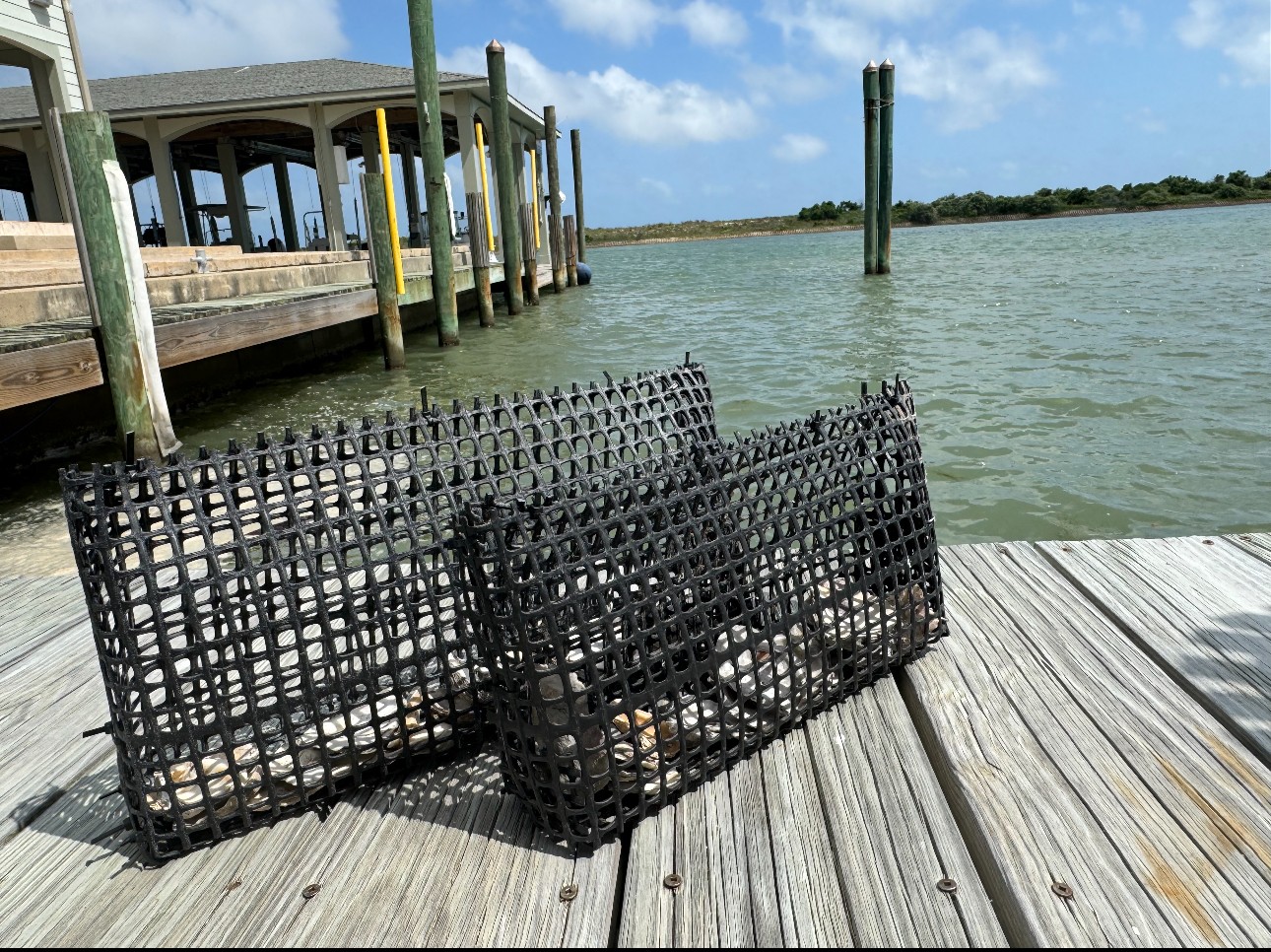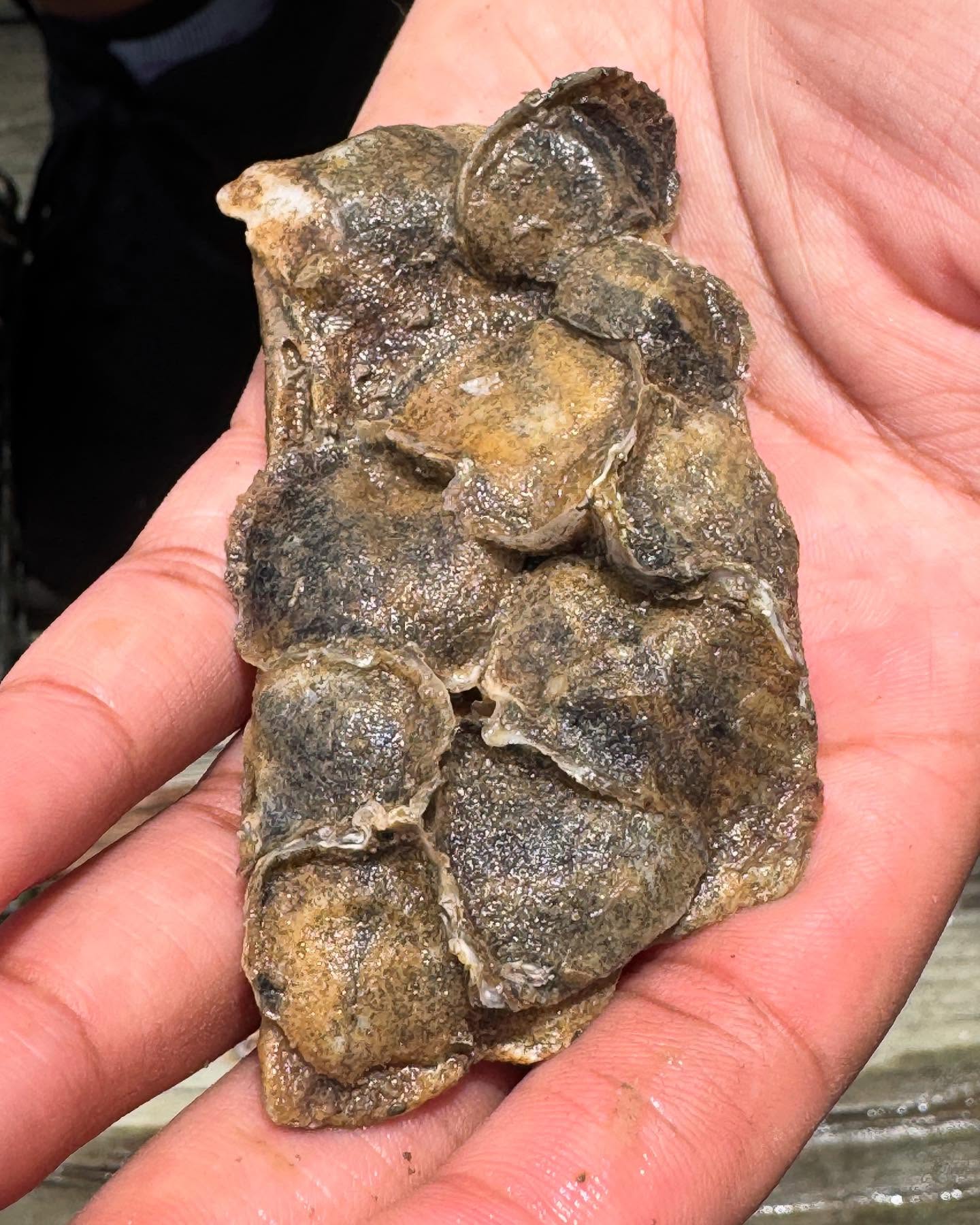Oyster Gardening Project Engages Coastal Volunteers in Restoration Efforts
Texas Sea Grant’s pilot oyster gardening project engages volunteers in growing juvenile oysters for reef restoration. In partnership with Mid-Coast Texas Master Naturalists, the effort supports habitat recovery, water quality monitoring, and community stewardship along the Texas coast.
Aug 8, 2025 By Amy Nowlin Coastal and Marine Extension Agent – Matagorda County
3 minutes
 Two oyster cages on a pier
Two oyster cages on a pierAs part of Texas Sea Grant’s ongoing work to support coastal restoration and community-based stewardship, a pilot oyster gardening project is showing early signs of success. Launched in collaboration with the Mid-Coast Texas Master Naturalist chapter, the initiative offers a hands-on opportunity for local volunteers to support oyster reef restoration along the Texas coast.
Oyster gardening is a restoration technique in which volunteers grow juvenile oysters in protective cages suspended from docks or piers. Once mature, the oysters are relocated to natural reefs to support long-term habitat recovery.
Spanning from Matagorda County to Aransas County, the pilot program engages citizen scientists in monitoring environmental conditions while supporting oyster habitat development. To date, approximately 70 oyster habitat cages have been deployed along docks and private piers in Matagorda, Calhoun and Aransas counties.
The project has been made possible through support from local partners. Oyster Bros., based in Palacios, donated oyster farming bags that were repurposed into habitat cages. The Matagorda Bay Foundation contributed mesh bags used to create additional habitat for developing spat, or baby oysters.
For the Mid-Coast Texas Master Naturalist volunteers, the program also offers a chance to earn service hours while contributing to local conservation. Participants monitor water quality, track oyster growth, identify native and invasive species, and help prepare for relocation efforts.
Throughout the summer, volunteers have reported a range of experiences. While many habitats are thriving, others have faced challenges such as biofouling, invasive species and predation by crabs and skilletfish. These findings highlight the ecological complexity of the region and the importance of site-specific strategies for restoration.
Despite these challenges, early results are promising. It is estimated that more than 12,500 oysters have grown across the pilot gardens.
A fall collection event is planned, during which volunteers will remove the oysters from their cages and transport them to designated, permitted restoration reefs. Once relocated, the oysters will continue to grow and contribute to the recovery of critical reef habitat along the Texas coast.
The pilot project not only supports oyster restoration but also raises public awareness, strengthens community-science partnerships and empowers residents to play an active role in protecting Texas’ coastal ecosystems.
Texas Sea Grant is proud to support this innovative effort led by the Mid-Coast Texas Master Naturalists and looks forward to sharing more updates as the project progresses.
For more information on activities in Matagorda County, follow the Matagorda County Coastal and Marine Resources pages on Facebook and Instagram.
####
About Texas Sea Grant
Texas Sea Grant is a unique partnership that unites the resources of the federal government, the State of Texas and universities across the state to create knowledge, tools, products and services that benefit the economy, the environment and the citizens of Texas. It is administered through the National Oceanic and Atmospheric Administration and is one of 34 university-based Sea Grant Programs around the country. Texas Sea Grant is a non-academic research center at Texas A&M University. The program’s mission is to improve the understanding, wise use and stewardship of Texas coastal and marine resources.

